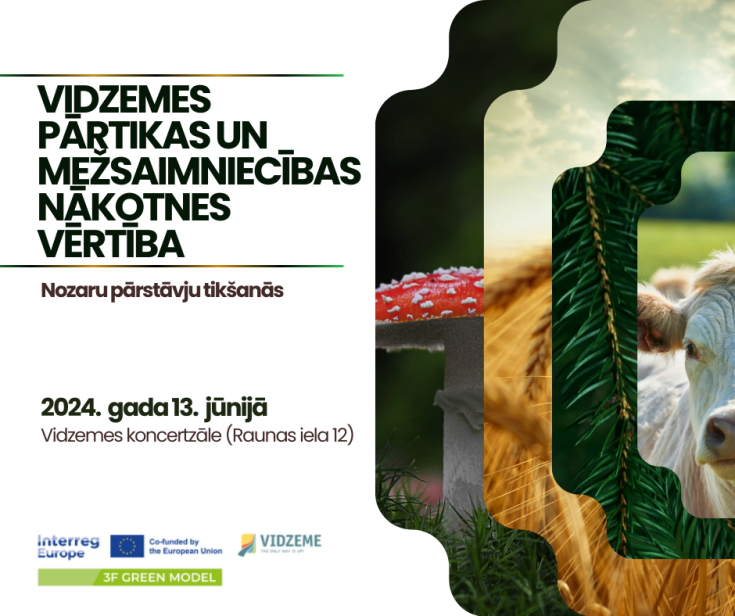3F GREEN MODEL - Strategic Discussions in Cēsis, Latvia
Strategic Discussions in Cēsis: Future Collaborations for Sustainable Agriculture and Forestry
By Anita Āboliņa, Vidzeme Planning Region
On June 13, 2024, a significant stakeholder meeting took place in Cēsis as part of the Interreg Europe project 3F Green Model. This event brought together experts and stakeholders from the agriculture and forestry sectors to discuss progress, share experiences, and explore future collaboration opportunities to align with the European Green Deal and the EU Circular Economy Strategy.
During the meeting, attendees received a comprehensive presentation on the 3F Green Model project, highlighting various activities and reflecting on previous exchange visits. The Vidzeme Planning Region's Development Program for 2022-2027 was also a key topic, focusing on strategic approaches and insights from thematic groups to shape the region's future development.

A major discussion point was about how to activate the utilization of production by-products in the region's priority sectors, aligning with the broader goal of transitioning from a "take-use-dispose" model to an environmentally friendly circular economy. Participants emphasized incorporating by-products not primarily usable by producers, especially in practical work sectors.
Experiences shared by external collaboration partners highlighted innovative practices in various regions. For instance, Asturias' experience with biogas production underscored the importance of state subsidies for newly established companies, a model that could influence national policy development. Similarly, Sicily's efficient use of surplus products showcased a valuable circular economy practice that could inspire similar initiatives in Latvia.
The meeting also emphasized the continuous development and improvement of the Vidzeme Planning Region's Development Program. This process involves defining outcomes, prioritizing scenarios, and continuously monitoring and adapting to changing trends and circumstances. Engaging industry representatives and incorporating their suggestions were deemed crucial for the program's success.

Looking ahead, each participating country will submit three best practices for adoption in other regions, aiming to bring the agricultural and forestry sectors closer to a circular economy. The meeting highlighted the potential for involvement in training visits and further knowledge exchange, essential for achieving the project's long-term goals.
It is anticipated that stakeholders will continue to meet regularly in this format in the future. There was also a suggestion to change the meeting locations periodically to visit and learn about the daily operations of sector participants at their companies and organizations. Among the stakeholders were representatives from leading national organizations such as Latvijas Valsts Meži (Latvia's State Forests), the Latvian State Forest Research Institute "Silava," the Institute of Agricultural Resources and Economics (AREI), and the Investment and Development Agency of Latvia (LIAA), among others.
